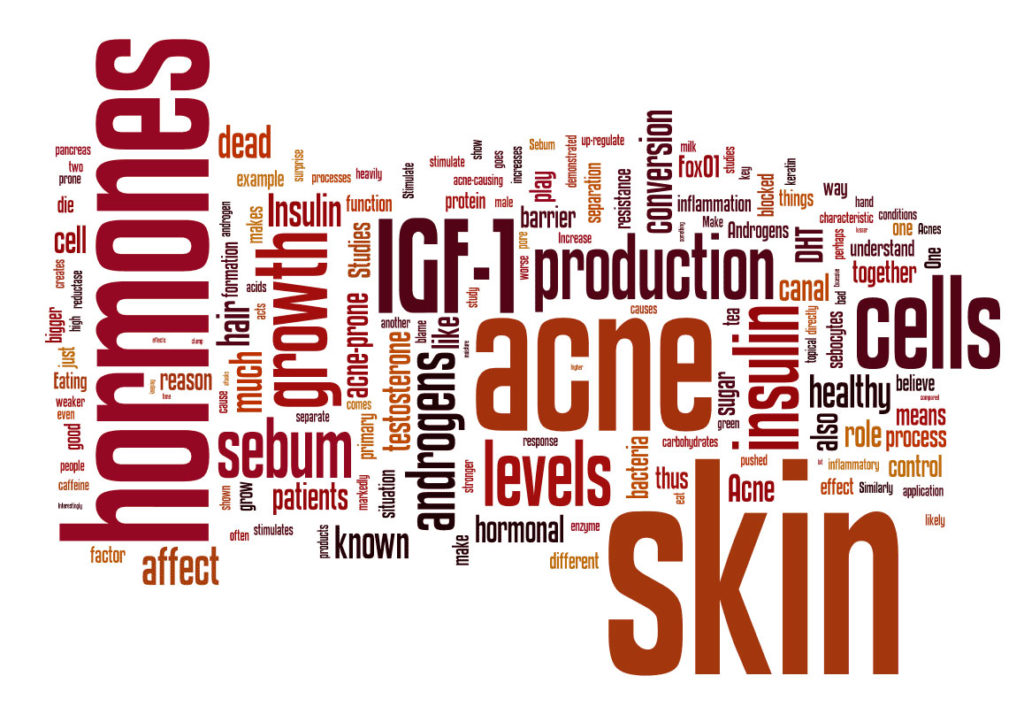Are you concerned about the risk of skin cancer and looking for natural ways to reduce it? Look no further than the power of vitamin B3, also known as niacinamide. In this article, we explore the importance of vitamin B3 in reducing the risk of skin cancer from a functional medicine perspective.
Understanding functional medicine and its approach to skin cancer prevention
Functional medicine takes a holistic approach to health, focusing on the underlying causes of diseases rather than just treating symptoms. Regarding skin cancer prevention, functional medicine recognises the importance of nourishing the body with essential nutrients that support skin health.
The importance of vitamin B3 in reducing the risk of skin cancer
Vitamin B3 is crucial in DNA repair and maintenance, making it an essential nutrient for maintaining healthy skin cells. Research suggests that niacinamide can help protect the skin against the harmful effects of ultraviolet (UV) radiation, a major risk factor for skin cancer.
Studies have shown that vitamin B3 can repair DNA damage caused by UV radiation, preventing the formation of cancerous cells. In addition, niacinamide has been found to stimulate the production of collagen and elastin, proteins that are vital for maintaining the skin’s integrity and elasticity.
Research studies supporting the use of vitamin B3 for skin cancer prevention
Numerous research studies have highlighted the potential of vitamin B3 in reducing the risk of skin cancer. A study published in the New England Journal of Medicine found that participants who took high doses of niacinamide experienced a 23% reduction in the incidence of non-melanoma skin cancers compared to those who took a placebo.
Another study conducted by the National Cancer Institute found that individuals with a higher intake of vitamin B3 had a lower risk of developing squamous cell carcinoma, a type of skin cancer. These findings provide strong evidence for the role of vitamin B3 in preventing skin cancer.
How vitamin B3 works to protect against skin cancer
Vitamin B3 exerts its protective effects against skin cancer through multiple mechanisms. Firstly, it acts as an antioxidant, neutralising free radicals that are produced by UV radiation and can damage DNA. Niacinamide helps prevent the formation of cancerous cells by reducing oxidative stress.
Additionally, vitamin B3 has anti-inflammatory properties, which can help reduce inflammation caused by UV radiation. Chronic inflammation is known to contribute to the development of various types of cancer, including skin cancer. By reducing inflammation, niacinamide helps create an environment that is less conducive to cancer growth.
Recommended daily intake of vitamin B3 for skin cancer prevention
The recommended daily intake of vitamin B3 varies depending on age, sex, and life stage. The recommended dietary allowance (RDA) of niacin for adults is 16 mg for men and 14 mg for women. However, higher doses of niacinamide may be needed for skin cancer prevention.
Functional medicine practitioners often recommend higher doses of niacinamide, ranging from 500 to 2000 mg daily, depending on individual needs and risk factors. It is important to consult with a healthcare professional before starting any supplementation regimen. Of course, this does not replace the healthcare and advice from your GP or dermatologist.
Food sources rich in vitamin B3
While supplementation can be beneficial, obtaining nutrients from whole foods whenever possible is always a good idea. Vitamin B3 can be found in various food sources, including:
- Meat: Chicken, turkey, and beef are good sources of vitamin B3.
- Fish: Tuna, salmon, and sardines contain vitamin B3.
- Legumes: Peanuts, lentils, and chickpeas are rich in niacin.
- Whole grains: Brown rice, barley, and oats provide vitamin B3.
- Vegetables: Mushrooms, avocados, and potatoes contain niacin.
Incorporating these foods into your diet can help ensure an adequate intake of vitamin B3 for skin cancer prevention.
Supplementing with vitamin B3 for skin cancer prevention
In some cases, obtaining sufficient amounts of vitamin B3 from food alone may be challenging. This is where supplementation can play a role. Niacinamide supplements are widely available and can be taken in tablet or capsule form.
When choosing a vitamin B3 supplement, looking for high-quality products from reputable brands is important. Additionally, consulting with a healthcare professional or a functional medicine practitioner can help determine the appropriate dosage for your specific needs.
Other lifestyle factors for reducing the risk of skin cancer
While vitamin B3 is a valuable tool in reducing the risk of skin cancer, it is important to remember that it is just one piece of the puzzle. Adopting a holistic approach to skin cancer prevention involves incorporating other lifestyle factors, such as:
- Using sunscreen: Applying a broad-spectrum sunscreen with a high SPF can protect the skin from harmful UV radiation.
- Seeking shade: Limiting sun exposure during peak hours can reduce the risk of skin damage.
- Wearing protective clothing: Covering exposed skin with long-sleeved shirts, hats, and sunglasses can provide additional protection against UV radiation.
- Avoiding tanning beds: Tanning beds emit harmful UVA and UVB radiation, increasing the risk of skin cancer.
Final thoughts on vitamin B3 and skin cancer prevention
Empower yourself with the knowledge to make informed decisions about your skin health. Vitamin B3, also known as niacinamide, is vital in reducing the risk of skin cancer from a functional medicine perspective.
Research studies have shown the potential of vitamin B3 in protecting against skin cancer by repairing DNA damage, stimulating collagen production, and reducing inflammation. While supplementation can be beneficial, obtaining vitamin B3 from whole foods is recommended whenever possible.
Remember to incorporate other lifestyle factors, such as sunscreen use, seeking shade, and wearing protective clothing, to reduce the risk of skin cancer further. You can prioritise your health and well-being by taking a holistic approach to skin cancer prevention.
Sources: – Study 1: New England Journal of Medicine – Study 2: National Cancer Institute
This article is intended for informational purposes only and should not be taken as medical advice. Please consult with a healthcare professional before changing your diet or supplement regimen.




